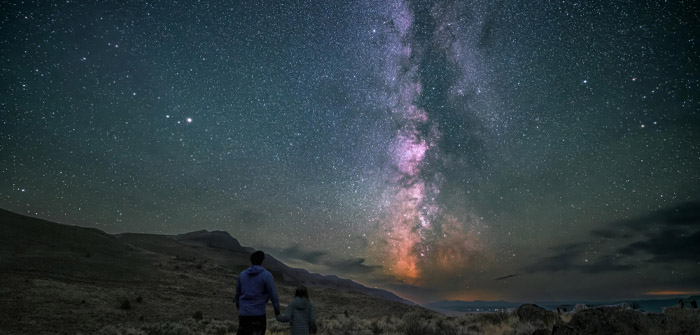(Photo by Joey Hamilton / Travel Oregon)
In honor of the state’s pristine starry skies, The Oregon Tourism Commission, dba Travel Oregon, is reminding visitors that the spring and summer months are optimal times to stargaze and observe celestial bodies. During International Dark Sky Week from April 15-22, 2023 — as well as all year long — visitors to the state are invited to participate in star-focused events and activities, as well as enjoy excellent stargazing in areas such as the Oregon Outback, Prineville Reservoir State Park, Cottonwood Canyon State Park, Wallowa Lake State Park and more. Visitors are encouraged to learn how the reduction of light pollution can simultaneously conserve energy and improve quality of life for humans and wildlife. The state is also preparing to welcome visitors to multiple regions of the state to experience events and activities around the annular solar eclipse that will be visible in Oregon on October 14, 2023.
Oregon’s seven regions are home to numerous dark sky havens, including the high-desert landscapes of Eastern, Central, Southern Oregon and more – specifically, the area known as the Oregon Outback. In addition, Prineville Reservoir State Park — about a 50-mile drive northeast of Bend — became Oregon’s first state park to earn certification as an International Dark Sky Park in May 2021. It joined Sunriver Resort as the only other “International Dark Sky Place” in Oregon and is now one of fewer than 200 such places around the world.
“Oregon’s dark skies offer residents and visitors an impressive array of locations throughout the state to enjoy year-round opportunities for stargazing,” said Todd Davidson, CEO of Travel Oregon. “A unique and meaningful way to experience a destination, dark sky tourism also provides positive environmental, cultural and economic benefits to local communities. Experiencing Oregon’s dark skies in the less-crowded seasons, such as in April for International Dark Sky Week or October for the upcoming annular solar eclipse, ensures tourism dollars help sustain communities throughout the year.”
Numerous guides and outfitters around the state offer dark sky/nighttime tours and experiences. OMSI is partnering with Rose City Astronomers and Oregon Parks and Recreation to offer OMSI Star Parties once a month from June through September at both Rooster Rock State Park and L.L. Stub Stewart State Park. Eastern Oregon’s Go Wild offers alpine stargazing and wine tasting and Oregon City’s eNRG Kayaking has full moon paddles. In Central Oregon, Wanderlust Tours hosts starlight and moonlight canoe and snowshoe tours as well as a naturalist-guided hike and experience at Fort Rock around the annular eclipse, Worthy Brewing hosts events at their Hopservatory and Sunriver’s Nature Center and Observatory offers night sky viewing parties, private tours and more.
According to the International Dark Sky Association, light pollution is increasing at twice the rate of population growth, and 83 percent of the global population lives under a light-polluted sky. Tips for doing your part to reduce light pollution include:
- Make sure outdoor lighting is used only where and when it’s needed.
- Shield outdoor lights so they shine down on the ground, which reduces harmful glare and decreases skyglow.
- Keep light levels only as bright as necessary.
- Use controls like timers, dimmers and motion sensors.
- Use warm-color lights where possible, which limits the use of harmful blue-wavelength lighting.
Locals and visitors looking to plan a stargazing adventure can look to Oregon campgrounds like
Tualatin Valley’s L.L. Stub Stewart State Park or Valley of the Rogue State Park in Southern Oregon. Try Eastern Oregon’s Cottonwood Canyon State Park or coastal Fort Stevens State Park. Choose from thousands of sites in state parks, national forests and wilderness areas. For travel tips visit traveloregon.com or see below.
- Book your site early, check back often for cancellations or seek out a site that is first-come, first-served.
- Check the forecast for clear skies and to avoid heavy cloud cover.
- If you’re new to night-time excursions, consider joining a guided night hike, attending a star party event or participating in a ranger-led stargazing experience.
- Be prepared as you travel to remote areas where cell service and gas stations are limited.
- You may want to bring a camera and tripod, telescope and a paper map and download an app for stargazing.
- Support and be respectful of nearby small communities as you travel
- Lastly, always be sure to pack everything out.
For more information on Oregon’s pristine starry skies, see here.





